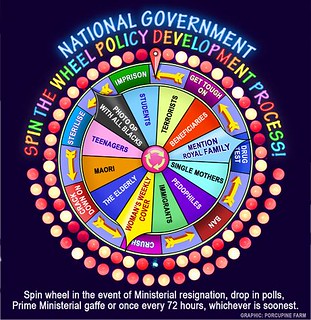Corruption doesn't always come in the form of an envelope full of cash. Sometimes its disguised as generous "lobbying" and overseas junkets. Which is why we make our MPs declare every gift, and every significant externally-funded trip, so that we can see that they are clean. So how would we feel if a foreign government was inviting members of MP's parliamentary staffs - their policy advisors, research staff, and chiefs of staff - on expensive foreign junkets, treating them to a week a foreign country with all the tourist sites, and lobbying them all the while, in a deliberate effort to bypass that disclosure regime?
They're not, as far as we know. But we are doing exactly that to the United States. The revelation comes from the
Washington Post, which has
diligently tracked junkets by Congressional staff. And while the focus is on China, we are also on the
list, with 13 "cultural exchange" visits between 2006 and 2011 (2012 reports aren't out yet, hence there is no data for that year).
For example, in 2006, we sponsored Jayme White (then Legislative Director to Rep. Jim McDermott, who was then a member of the House Ways and means Committee's Trade Subcommittee) and Robert Lee Larew (a staffer for the House Agriculture Committee) on a 10-day junket. They visited Auckland, Wellington, Christchurch and Queenstown, and their lodgings and meals were all paid for. The next year we sponsored Alan Tennille (chief of staff to Rep. Gerald Weller, also on the Ways and Means Trade Subcommittee) and Bryan Dierlam (another staffer for the House Agriculture Committee) on a similar junket. We hosted more staffers in 2009, 2010 and 2011, again focused on trade (though after 2009 with a sideline on "Homeland Security"). The trips were classified variously as "Mutual Education and Cultural Exchange" and "New Zealand - US Congressional Education Exchange Program".
The point of this lobbying is clear: it is aimed at building influence to assist New Zealand's bid for a free trade agreement with the US. But its clearly lobbying, of a type that we would be deeply upset about if our elected representatives or public officials were targeted with.
New Zealand is supposed to stand for clean government. We should not be using such tactics. Instead, we should be trying to eliminate such deep-pocketed lobbying. But what politician is ever going to vote to do that?
